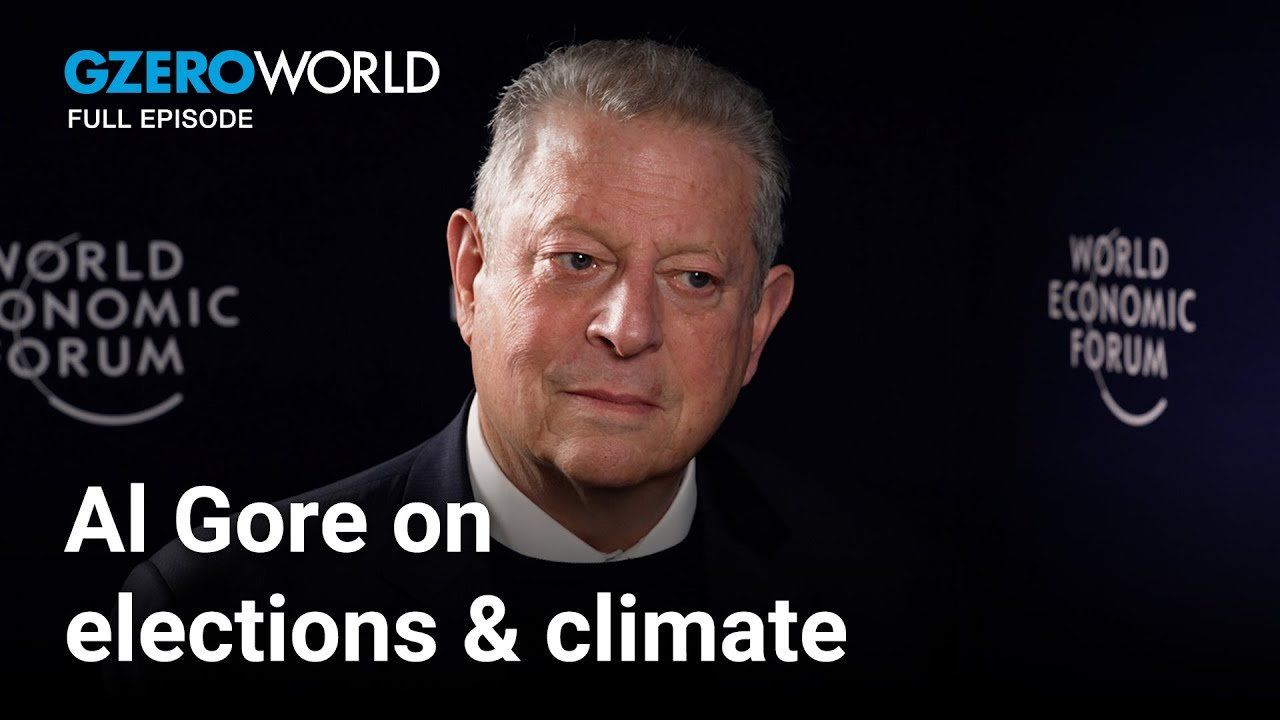
Ian reports from the 54th World Economic Forum in Davos, Switzerland, where the theme this year is “Rebuilding Trust in a Fractured World.” And for sure, confidence in major institutions like governments, churches, and the media is at historic lows. Add to that equation a year that will test democracy like none we’ve seen—as many as 70 elections will take place around the world in 2024. None will be more watched—whether in Davos or Des Moines—than the US presidential election.
Al Gore is no stranger to contested elections, and shares his take on the current state of American politics and some positive news about the progress of climate action. The conversation touches on the most pressing topics at Davos: artificial intelligence, climate change, and deep concerns about the 2024 US election and American democracy.